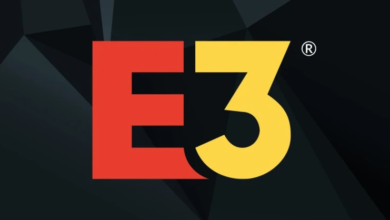
Esports in America has transformed from underground gaming tournaments into a cultural and economic powerhouse, rivaling traditional sports in viewership and revenue. As we approach 2025, the industry stands at a pivotal moment poised for exponential growth through technological innovation, corporate investment, and mainstream recognition. No longer just a pastime for gamers, Esports in America has become a legitimate career path, a lucrative marketing platform, and a new form of entertainment that bridges generations. This article explores the key factors driving esports forward, from emerging technologies to regulatory challenges.
The rapid rise of Esports in America has been fueled by shifting media consumption habits, the global reach of streaming platforms, and the increasing involvement of traditional sports franchises. By 2025, experts predict that esports will solidify its place in American entertainment, with professional leagues, college scholarships, and even Olympic recognition becoming standard. However, as the industry matures, it must also address critical issues such as player health, gambling regulations, and sustainable monetization. The future of Esports in America is bright, but its continued success depends on how well it navigates these challenges.
Esports in America
The Current State of Esports in America
The Esports in America has grown at an unprecedented rate over the past decade. What once consisted of small, enthusiast-run competitions has evolved into a structured ecosystem with professional teams, corporate sponsorships, and multimillion-dollar prize pools. Games like League of Legends, Valorant, and Call of Duty dominate the competitive scene, while streaming platforms such as Twitch and YouTube Gaming have turned elite players into global celebrities.
Major sports organizations
Major sports organizations, including the NBA and NFL, have also entered the space, launching their own esports leagues e.g., the NBA 2K League and the eNASCAR Coca-Cola Series. This crossover between traditional sports and esports has helped legitimize competitive gaming as a mainstream entertainment product. Additionally, universities now offer varsity esports programs, with scholarships attracting top talent further blurring the line between athletics and gaming.
Explosive Growth
Yet, despite its explosive growth, esports still faces hurdles. Unlike traditional sports, which have well-established governing bodies, esports operates across multiple leagues with varying rules. Issues such as cheating, match-fixing, and player burnout remain concerns. Furthermore, while revenue streams from sponsorships and media rights are growing, many organizations still struggle to turn consistent profits. As we look toward 2025, the industry must address these challenges to ensure long-term stability.
Key Trends Shaping Esports in 2025
The Rise of Immersive Technologies
Virtual reality (VR) and augmented reality (AR) are set to revolutionize esports by creating more engaging spectator experiences and entirely new competitive formats. Imagine watching a Counter-Strike match where viewers can “step inside” the game through VR or seeing real-world stadiums enhanced with AR overlays during live broadcasts. Companies like Meta (Oculus) and Sony are investing heavily in this space, suggesting that VR esports tournaments could become mainstream by 2025.
Analyze player performance
Artificial intelligence (AI) is another game-changer, with tools that analyze player performance, suggest strategies, and even simulate opponents for training purposes. AI-driven commentary and automated highlight reels could also enhance broadcasts, making esports more accessible to casual viewers, betting on its long-term growth. Even traditional media companies like Disney and NBC are securing broadcasting rights.
Mobile Esports Takes Center Stage
While PC and console gaming have long dominated Esports in America, mobile gaming is rapidly catching up. Titles like PUBG Mobile, Call of Duty: Mobile, and Wild Rift League of Legends’ mobile version are attracting massive audiences, particularly in younger demographics. The accessibility of smartphones means that mobile esports could surpass traditional platforms in both player base and revenue by 2025.
Models and Big-Money Investments
The success of franchise-based leagues like the Overwatch League and Call of Duty League has proven that esports can adopt traditional sports business models. In 2025, we can expect more leagues to follow this structure, providing financial stability for teams and players. Outside of gaming, celebrities such as Drake and Michael Jordan and venture capital firms are pouring money into esports organizations.
Increased Franchising
Traditional sports teams and celebrities are investing heavily Esports in America, recognizing its potential for long-term growth. Franchise-based leagues, similar to the NFL or NBA, are becoming more common, ensuring stability and profitability for teams and players. Additionally, venture capital firms and corporate sponsors are pouring money into esports startups, from betting platforms to content creation networks, prize pools, and smartphone manufacturers are optimizing devices for competitive gaming.
Regulatory and Ethical Challenges
As Esports in America grows, so do concerns around fair play and player welfare. Gambling on esports matches both legal and illegal is a booming industry, raising questions about integrity and underage betting. Meanwhile, the intense training schedules of professional gamers have led to discussions about mental health and burnout. Governments and esports bodies will need to establish clearer regulations, from anti-doping policies to standardized contracts for players.
The Future of Esports Predictions for 2025
By 2025, Esports in America will likely be fully integrated into mainstream entertainment. Esports in the Olympics: The International Olympic Committee has already experimented with esports events, and full recognition could happen by 2028. Hybrid Events: Combining physical sports with esports e.g., virtual F1 races alongside real ones. Decentralized Esports: Blockchain and NFTs could enable player-owned teams and digital asset trading.
Read More: Top Budget Phones in the U.S. That Punch Above Their Weight
Conclusion
Esports in America is no longer a fringe phenomenon it’s a cultural and economic juggernaut with limitless potential. By 2025, advancements in VR, mobile gaming, and franchising will push the industry to new heights, making competitive gaming a staple of modern entertainment. However, for esports to sustain its growth, it must tackle pressing issues like regulation, player health, and financial sustainability. More College & High School Programs Esports scholarships will become as common as those for football or basketball.
The next few years Esports in America will be defining for esports. Whether through Olympic recognition, groundbreaking technology, or new business models, competitive gaming is set to reshape how we think about sports and entertainment. For players, fans, and investors alike, the future of esports is not just promising it’s inevitable. The industry must also address diversity and inclusion, ensuring that women and underrepresented groups have equal opportunities in competitive gaming.
FAQs
How much is the esports industry worth in 2025?
The U.S. esports market is projected to exceed $2 billion by 2025, driven by sponsorships, media deals, and merchandise, signaling that esports is here to stay.
Which esports games are most popular in America?
League of Legends, Valorant, Call of Duty, Fortnite, and CS2 lead the scene, with mobile games like PUBG Mobile rising fast. As 5G networks expand, latency issues will diminish, further boosting mobile esports’ viability.
Will VR replace traditional esports?
Not entirely, but VR will introduce new competitive formats, blending physical and digital gameplay in innovative ways, the competitive gaming landscape will evolve in the next two years.
Are there esports degrees or scholarships?
Yes, many universities now offer esports programs and scholarships, with some even building dedicated gaming arenas. Many universities now offer esports scholarships, with varsity teams competing in national leagues.
What’s the biggest challenge facing esports?
Balancing rapid growth with player welfare, fair regulations, and sustainable revenue models remains a key hurdle. Tournaments like the Mobile Legends Bang Bang World Championship already offer multi-million-dollar.











